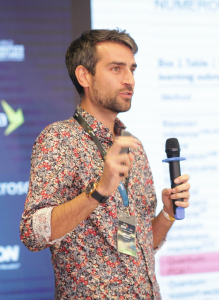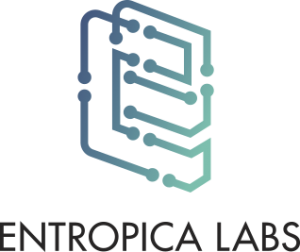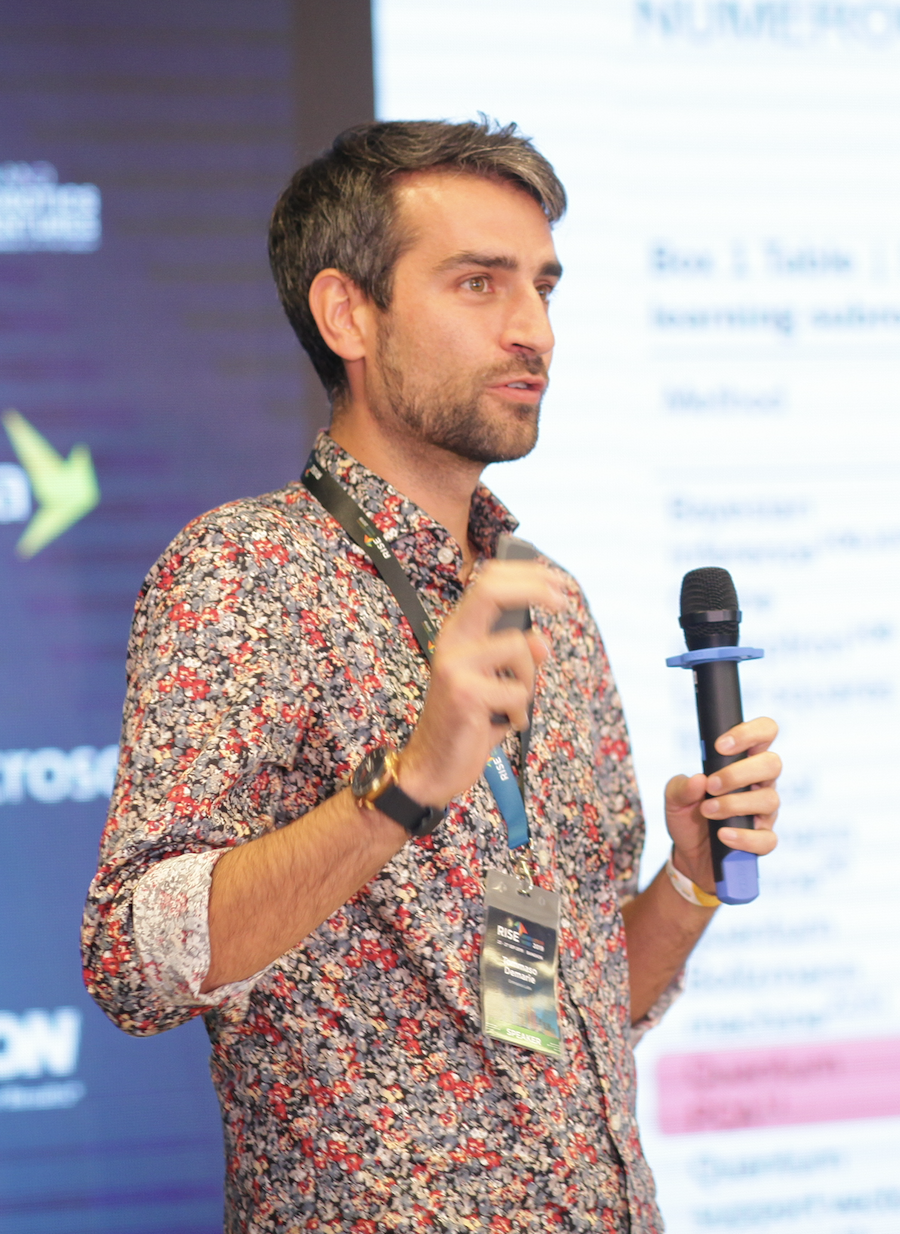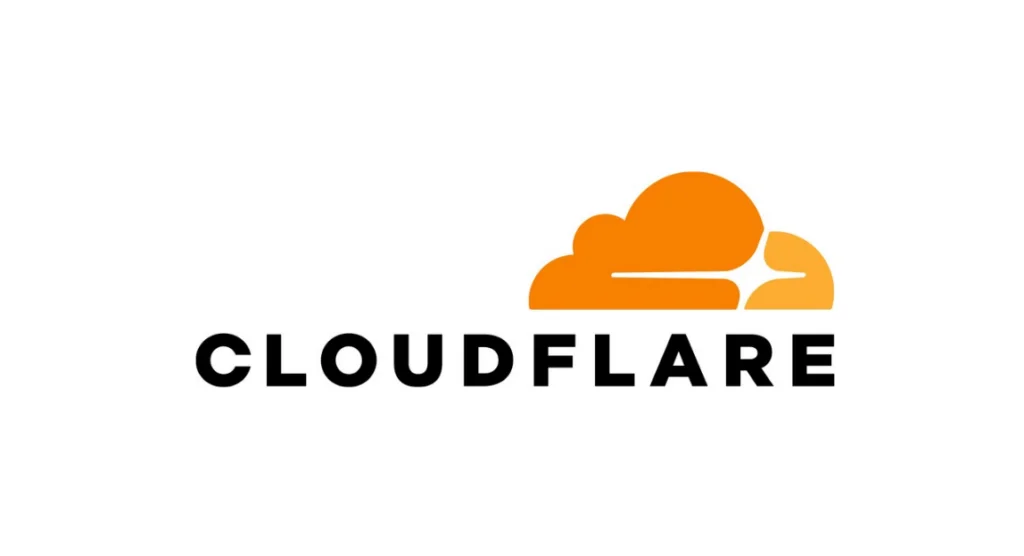
The mission of Entropica Labs is to do the best with quantum computers, every day. From their HQ in Singapore, they aim to spread the power of quantum across the globe — but they will only blaze that trail if they can do so in an unflinchingly honest and scientifically rigorous way, according to the company’s CEO.
Tommaso Demarie, Entropica Labs’ CEO and co-founder, is chiefly responsible for business strategy and development at the startup. Still, he continues to keep a hand in the other subtleties of creating a company, including guiding the company’s culture and team building, facilitating investor relationships and boosting customer acquisition.
Started in 2018, Entropica Labs is a young company in a young field. However, Demarie said the startup is working to establish relationships with a core group of customers and with the commitment of building deep partnerships. The team does this by collaborating in honest and transparent ways. For example, one of Entropica Labs’ key clients is the BMW Group. Entropica has already worked with the German-based multinational corporation on projects to explore the use of quantum computation to help it solve business challenges, said Demarie.
“They (BMW Group) presented our findings at the recent Quantum.Tech conference,” he said. “It is fascinating work based on quantum and heuristic optimization. This kind of engagement offers the optimal conditions to put our problem-solving skills at good use.”

In this project, the Entropica team found that quantum solutions are not always the best ones for certain problems that the company is hoping to solve. That may seem like a bit of bad news, but for the team, it was a way of demonstrating their problem-solving skills and establishing an open and honest collaboration, the co-founder said.
“Funny enough, the main result we found — the one that was presented at Quantum.Tech — was a negative result,” said Demarie. “We were very much looking at a specific problem of interest to them — and what we found was an improvement on a classical heuristic that gives a better result than the benchmark that they were using. It shows that quantum computing is not the best option, at least for that specific problem statement.”
Demarie added that, at this point in quantum computing development, even negative results are essential. They constitute a part in the process of understanding how companies should plan to use quantum computers to solve problems — highlighting areas where classical solutions make the most sense. “What I loved about working with them was that they understood the importance of that result,” he added. “In academia today there’s a certain reluctance to highlight negative results, which is bad, but we were satisfied with it because it was a concrete result and we also gained improvements using novel classical techniques.”
Beyond the scientific benefit of negative results — and Demarie points out that negative results have propelled the history of science in many instances — the example reveals an honest, non-hype approach to quantum computing that’s a core value for the company.
“We are building our company around the principle of being extremely honest about what we know, what we don’t know, what we can do and what we cannot do,” said Demarie. “This is especially important in quantum computing because there’s a misconception that quantum is going to solve all your problems — which is not true, of course.”
To make sure Entropica Labs solutions are tested on actual quantum hardware, not merely simulators, the company has established partnerships with leading hardware providers. They were early developers partners with Rigetti Quantum Cloud Solutions and became members of the Microsoft Quantum Network. These two companies, along with IBM, are among the startup’s list of key partners. “For us, the main goal for establishing partnerships is making sure we have access to the best quantum computing systems,” said Demarie, who studied physics in Italy before moving to Australia, Macquarie University in Sydney, to complete a PhD in quantum information theory.

Challenges
The startup founder is far from intimidated by the challenges facing quantum computing, and he is excited about both the future and the future hurdles. Working in the quantum computing industry and meeting these challenges force people to change the way they think, he said. Beyond just the fantastic potential of the machines, this shake-up in the typical approach to problems may unleash a new wave of creative problem-solving potential.
“Many of the challenges are part of the known-unknowns, but what excites me is all the unknown-unknowns that we still haven’t figured out yet,” Demarie said. “Quantum computers force you to think about problems in a fundamentally different way: What can you do if you have access to quantum memory? What can you do if you have access to a quantum network? We don’t have all the answers to that. If you go and look at all the use cases — including ours – they tend to cover the usual things. We’re taking problems that we understand, and we massage them, so they become quantum friendly. But that is just doing the known part.”
He said that the trend mimics the way scientists and engineers approached problems with early computers — and, based on the progress in classical computer science, this may give us a hint at what’s to come in the future of quantum information science.
New Thinking, Diverse Teams
Beyond new problem-solving skills and creative ways to approach problems, Demarie believes the keys to solving these challenges requires building diverse teams that can approach problems from different angles.
“This is a big challenge — how do you bring out new ideas? How do we start thinking of these problems in a different way than we do today?” Demarie asks. “Physicists come in with a lot of biases. We have almost a community-think to approach these problems. If everyone is thinking in a certain way — and, if it’s convenient and it works, there’s nothing wrong with that. But, when it comes to some of these problems, we wish to bring people in from other disciplines, who might not have the same biases, who might not think as we do.”
Early Investments
In May, the company announced that it raised $1.9 million in a seed round led by Elev8 VC and joined by big names in South East Asia, including SGInnovate and Wavemaker Partners, and the Japanese Software Integrators TIS Inc. Demarie is thankful for the support of the company’s funders and optimistic of the news that more money is backing quantum technologies. However, he added that funding remains a limitation for the quantum computing industry, in general, and, especially, compared to how other sectors are attracting investments, according to Demarie. It’s still very early, though, he added. “Funding is growing, but when you compare the funding for, let’s say, virtual reality, or some of these other areas, and quantum computing, we have just a fraction of the money,” he said.
The Quantum Ecosystem
Entropica is just one of the quantum startups that has made its home in Singapore. Demarie came to Singapore in 2014 to join the research group of Joe Fitzsimons — who is now the CEO of Horizon Quantum Computing, a Singapore-based quantum startup — as a postdoc research fellow at the Singapore University of Technology and Design and the Centre for Quantum Technologies. “What I really learned to appreciate while working with Joe was thinking about the practicality of what we were doing,” said Demarie. “There is theory work, and there is theory work developed with applications in mind.”
It’s those applications that Entropica Labs plans to be deeply involved in as the future of the quantum era continues.















